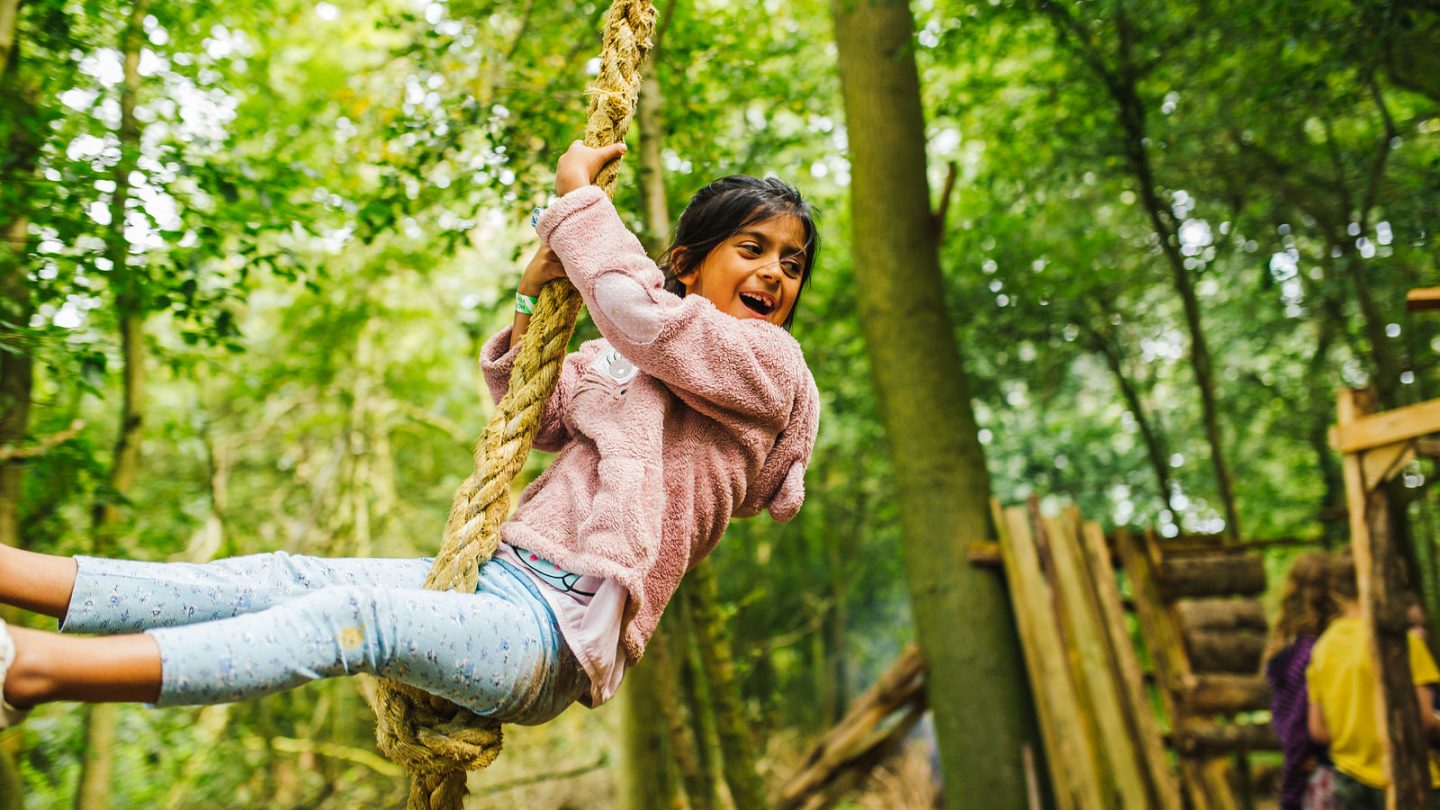Taking a child to a festival is potentially a life-changing experience. For three days, they’re a whole world away from exams, schoolbooks and progress reports. Those three days are about living in the moment, about being (a child) instead of becoming (an adult)! Shambala is one big playground for people of all ages, but it’s a really magical place when you’re a child.
Play is central to children’s culture; it’s how they express themselves, create and share new ideas, explore the boundaries of mind, body and environment, or just have a fun time with friends and family. Wrapping children in cotton wool does them no favours. There’s no doubt that playing safely and independently, experiencing and dealing with uncertainty, makes kids stronger emotionally and physically. Once you realise that, the rest is easy: we believe that there is no greater way to get closer to nature than with playful exploration and you can have complete faith in our skilled staff and our collective understanding that at Shambala we are one tribe and look after each other.
Of course, the idea of creating a space for free play and hands on fun for children’s education and development is not a new one — in fact it is a world-wide movement that began over half a century ago. Adventure playgrounds started in Denmark at the end of the Second World War, based on the ideas of a landscape architect who was inspired by the sight of children playing with leftover materials on construction sites. The idea of dedicated spaces for free play and construction quickly spread across Northern Europe. Lady Allen of Hurtwood brought them to the UK after visiting Scandinavian playgrounds — she insisted that sites were not concreted over; instead there should be plenty of bare earth on which to dig, build and muck about.
In the 1970’s the London Adventure Playgrounds Association was established and playgrounds in the UK became quite arty and anarchistic both in look and ethos; places of total freedom within common sense limits. Today, in Denmark and Copenhagen in particular, adventure playgrounds are everywhere and are highly valued by the communities who use them. In Berlin the emphasis is on construction and traditional craft skills: woodworking, metal work and pottery. In Japanese playgrounds they will light a fire under a tin bath to create a natural hot tub! Woodland Tribe draws on this exciting culture to create a woodland play space full of possibilities and uncertainties!
The team that create the Woodland Tribe area for Shambala, are adventure play fanatics: come and chat to Tom Williams at the Woodland Tribe at Shambala to learn more or send him an email: tom.woodlandtribe@gmail.com


